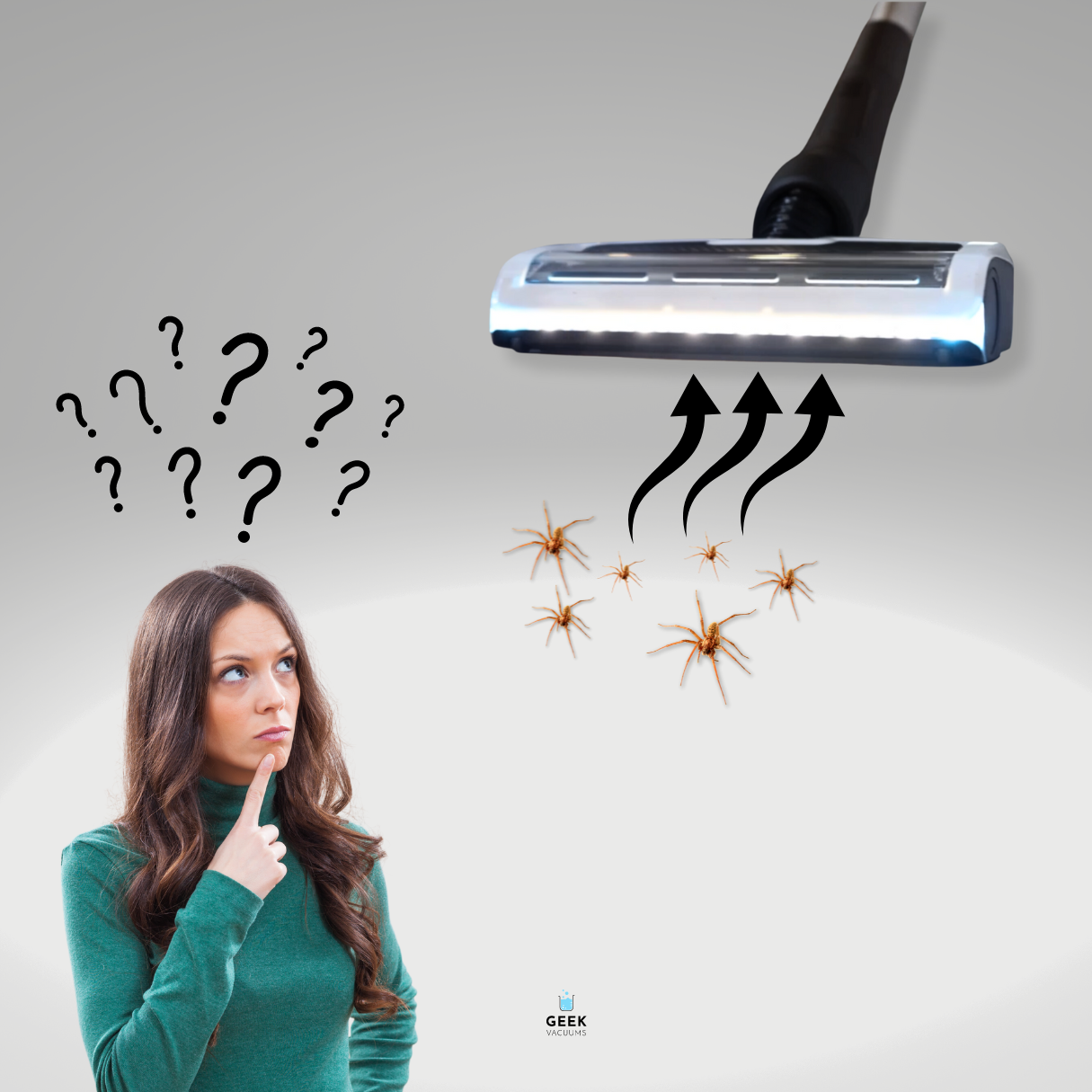If you’ve found this article, then like me, you’ve probably wondered what happens to spiders when we vacuum them up. Do they somehow disintegrate as they get sucked up through the hose and into the bag? In this article, we will delve into the truth behind this common belief and explore the effectiveness of vacuums in dealing ridding your home of spiders.
The Myth - Do Vacuums Kill Spiders?
Some people believe that vacuum cleaners have the power to instantly kill spiders by sucking them up. While it may seem possible, the reality is quite different. Vacuums are not specifically designed to exterminate spiders, but rather to remove dirt, debris, and allergens from our living spaces. When a spider gets sucked into a vacuum, it faces several possible outcomes.
Immediate Capture
In most cases, spiders are too quick and agile to get trapped by the vacuum's suction alone. They can sense the airflow and move away from the nozzle, escaping capture. So vacuums may not be as effective at eliminating spiders as we think.
Survival in the Vacuum Bag
Even if a spider does get sucked into the vacuum cleaner, it may survive in the dust bag. Spiders have remarkable survival abilities and can withstand extreme conditions. They might create webs or seek shelter within the vacuum's collection chamber, allowing them to crawl out when the vacuum is turned off.
Alternative Strategies to Deal with Spiders
Although vacuums might not be the most effective solution for spider control, there are alternative strategies you can employ to manage these eight-legged intruders.
Prevention is Key
The best way to deal with spiders is to prevent their entry into your home in the first place. Seal any cracks or gaps in windows, doors, and walls, ensuring they have no easy access points. Additionally, keep your home clean and clutter-free to minimize potential hiding spots for spiders.
Natural Repellents
Many natural substances can act as spider repellents, deterring them from entering your living space. Essential oils such as peppermint, tea tree, and eucalyptus have strong scents that spiders dislike. Dilute these oils in water and spray the mixture around windows, door frames, and other areas where spiders are likely to enter.
Physical Removal
If you do encounter a spider, a humane and effective approach is to physically remove it using a glass and a piece of stiff paper. Trap the spider under the glass, carefully slide the paper beneath it, and then release it outside away from your home.
When to Use Vacuums
While vacuums may not be the most effective method for spider control, they can still play a role in managing these pests.
Web Removal
Vacuum cleaners are highly useful for removing spider webs and their associated debris. Regularly vacuuming corners, ceilings, and other spider-prone areas can help discourage spiders from creating webs and infesting your home.
Capturing Visible Spiders
If you come across a slow-moving or injured spider, a vacuum can be a convenient tool to capture and remove it. However, keep in mind that it may not necessarily kill the spider.
In conclusion, the myth that vacuums kill spiders is not entirely accurate. While vacuums can remove spiders from your living space, they are unlikely to exterminate them. To effectively manage spiders, it's essential to focus on prevention, natural repellents, and physical removal. Remember to use vacuums primarily for web removal and capturing visible spiders rather than relying on them as a spider-killing tool. By adopting a combination of these strategies, you can maintain a spider-free environment and minimize your encounters with these creepy crawlers.

